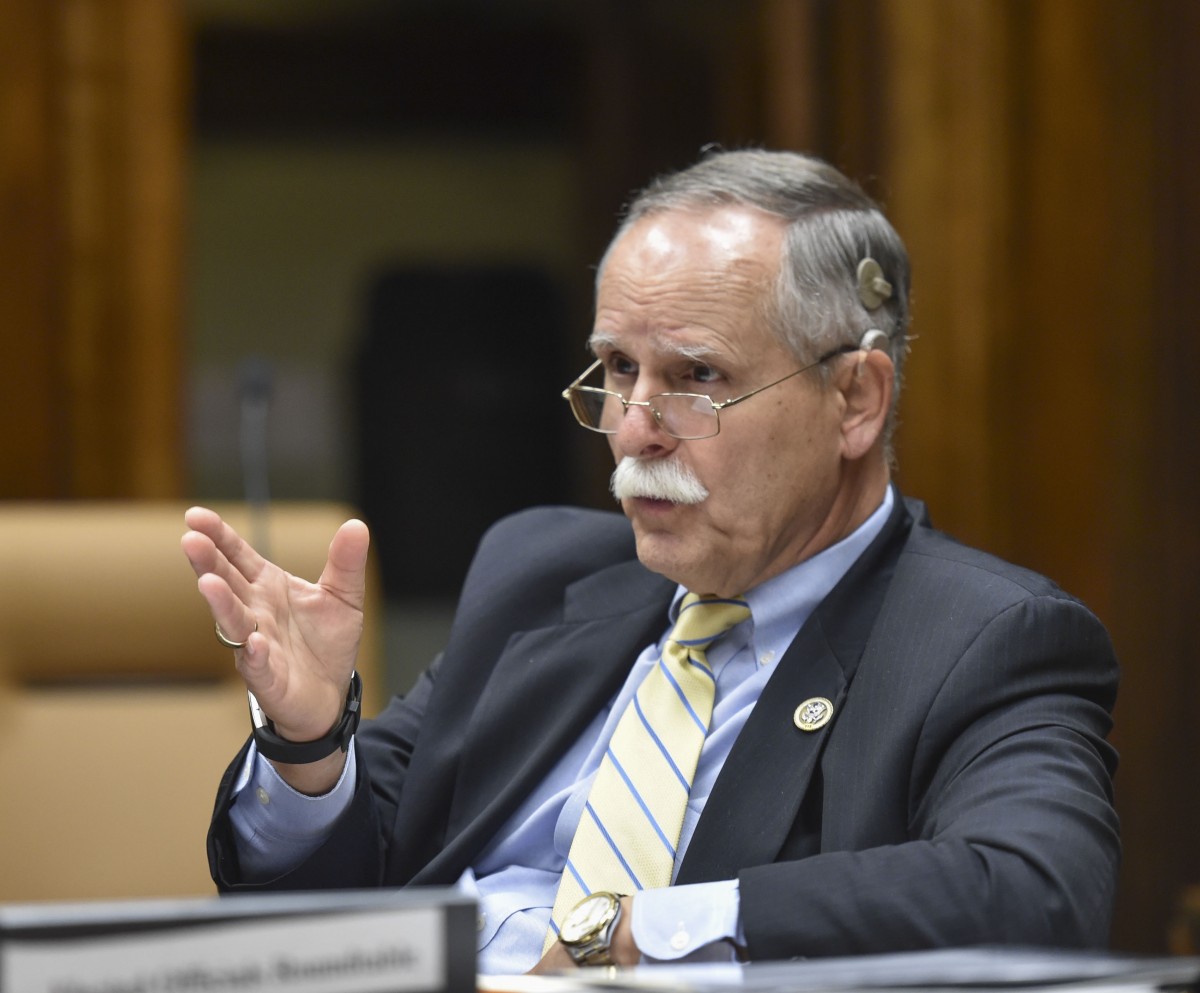MORGANTOWN — Rep. David McKinley, R-W.Va. visited Morgantown on Friday and spent some time with The Dominion Post to review some of the action in Congress.
McKinley cited three priorities: Opioids, health care and economic revitalization.
McKinley said President Trump recently signed a package of 57 opioid bills. They covered a blend of issues: Enforcement, rehabilitation and education among others.
Four of the bills were his, he said. “Think about that, the odds of that. I’m one person out of 435.” In the legislation was what he called the McKinley amendment, guaranteeing that 15 percent of all the money allocated to the states has to go to those that are hardest hit, including West Virignia.
Following a May meeting McKinley organized at WVU with the National Institutes of Health – offering tips on obtaining federal grants – discussion ensued, he said about “What’s causing people to use drugs?”
Money is spent on getting them off, getting them treatment. “Why don’t we go back and find out why are they on drugs in the first place?”
He knows there will be no single reason, no silver bullet. “Let’s at least find out.”
McKinley noted that West Virginia is now getting five times the amount of federal money from the year before. “I think raising Cain in Washington sometimes, is actually paying off, being the squeaky wheel.”
Recently, when another state turned down a $3.2 million Substance Abuse and Mental Health Services Administration grant, SAMSHA called to see if West Virginia wanted it. They didn’t have to do that, he said. “They understand this is one of our passions.”
Health care
On the topic of health care, McKinley addressed the fear that legislation to reform the Affordable Care Act could wipe out protections for those with pre-existing conditions.
When Trump made his recent visit to Wheeling, McKinley said, “He made it clear in front of the rally, just put that to rest. We are going to continue to provide for pre-existing conditions, period.” He won’t approve any legislation that comes to him without it.
And Congress won’t be rolling back the Medicaid expansion either, he said. In West Virginia, 200,000 got healthcare through it. A bill will contain provisions so that Medicaid funding can’t fall below existing levels, and will automatically increase geared to the Consumer Price Index.
“We don’t want to take insurance away from 200,000 people.”
The biggest cost to healthcare is prescription drugs, McKinley said, and he and others are focused on keeping those in line.
He mentioned two bills he’s behind. One is protection of Medicare 340B prescription discounts. As the Health Resources & Services Administration explains, drug manufacturers participating in Medicaid agree to provide outpatient drugs to covered entities — six categories of hospitals that serve that serve a large number of uninsured and low-income patients — at significantly reduced prices.
But, McKinley said, under pressure from big pharmaceutical companies, the Centers for Medicare and Medicaid Services issued a ruling in January that cut the 340B savings by nearly 30 percent.
A University of Pittsburgh Medical Center newsletter explains the consequences of this.
“For health care providers in the 340B program that is a $1.6 billion loss in reimbursement, according to CMS. With these dramatic cuts, drug prices will increase. Providers that currently offer care to vulnerable populations will be profoundly affected and likely forced to eliminate or scale back vital programs such as cancer care, mental health, and opioid services.
“In addition, because cost is the No. 1 reason patients do not fill prescriptions, any increase will put medication further out of reach for even more patients. … Without the current levels of 340B Medicare reimbursement, the cost of prescription drugs for the uninsured and underinsured could be passed on to participating hospitals, making it harder for them to treat people with little or no insurance.
“If hospitals and clinics have to absorb that cost, some may not be able to afford it and could shut down as a result. The 340B program plays a critical role in creating and caring for vulnerable communities across the country. Given the ever-increasing cost of medications, this program is essential.”
McKinley has 240 sponsors signed on to his bill, HR 4392, to reverse those cuts.
The other bill is the Fair Access for Safe and Timely (FAST) Generics Act. Brand-name drug makers use legal loopholes and foot-dragging to slow the mandatory process of making their medications available for testing by generics makers. This bill aims to prevent that by, among other means, tripling the penalties for delaying the release of their products.
The economy
On the topic of revitalization, McKinley talked about the 6 million job vacancies nationwide with no one willing to fill them. “How are we going to get the people into the workforce?”
Truck drivers and pipefitters, for example, are in big demand, he said. Pipefitters can make six-figure salaries with no college debt,
They have to find some kind of incentive, he said. “Maybe we need to stress vocational education again.” The nation needs to move away from the decades-long emphasis on the college track.
“We have to get back and remove the stigma associated with vocational education and get people back into that again,” he said. Along those lines, Congress has put almost $2 billion in the budget to allocate to the states to spur that movement.




